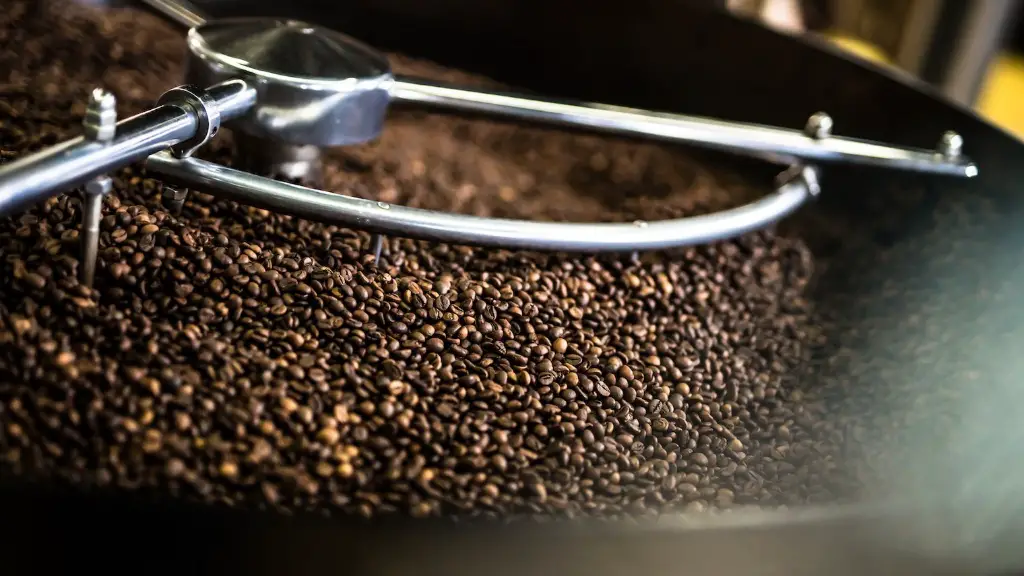Coffee has been a staple beverage for many people around the globe for centuries. Many new moms want to continue their coffee habit while breastfeeding, but wonder if it’s safe for the baby. Breastfeeding comes with its own challenges, but for many breastfeeding moms, the pros outweigh the cons and can easily make the difference between a successful breastfeeding journey and one that fails before it even had a chance. With the amount of caffeine in coffee, it’s understandable that new moms have concerns about drinking coffee while breastfeeding.
Studies have shown that moderate amounts of caffeine consumed by a breastfeeding mother will not affect the baby. However, as with anything else, moderation is key. High levels of caffeine can cause irritability and sleeplessness in babies. Most medical experts agree that breastfeeding mothers should not consume more than 300 mg of caffeine per day. That equates to three 8 oz. cups of brewed coffee, which may not be enough to satisfy the coffee cravings of some new moms.
In addition to caffeine, some studies have found that certain chemicals like lead, arsenic and cadmium can be present in coffee. These chemicals can be harmful if consumed in high levels. Decreasing these hazardous chemicals is easy, as long as you are aware of the risks. Choose organic coffee beans, and always opt for filtered boiled or cold-brewed coffee. Avoid pre-ground-instant coffee, as studies have shown that it may contain higher levels of chemicals.
What about decaffeinated coffee? It’s important to understand that decaffeinated coffee still contains some levels of caffeine, usually between 3-15 mg of caffeine. While more studies need to be done, recommendations for breastfeeding mothers are to also limit intake of decaffeinated coffee.
It’s important for breastfeeding mothers to stay informed about what they eat and drink. Not only does coffee contain caffeine, but also some vitamins and minerals, like magnesium and potassium, that may be beneficial to the breastfeeding mother.
It’s also important to know that caffeine affects everyone differently. While one breastfeeding mother may be able to drink three cups of coffee a day without significant effect on her baby, another mother who drinks the same amount of coffee may experience a negative effect. Therefore, it is recommended that you experiment with your caffeine intake and observe any changes in your baby’s behavior.
Ultimately, every breastfeeding mother needs to make the best decision for herself and her baby. Every mother and every baby is unique and will respond differently to coffee and caffeine. The best way to make sure you and your baby are getting all the benefits of breastfeeding is to stay up-to-date with the latest research, listen to your body and be aware of any changes in your baby’s behavior.
Caffeine Alternatives
There are several alternatives that can replace coffee while breastfeeding. Green tea, for instance, can often provide a caffeine-free alternative to coffee. Green teas are first steamed and then dried, rather than being treated with heat, so they can be brewed just like coffee and provide a milder but similar taste. Matcha is also an alternative to coffee and contains caffeine. Because matcha is powdered, it can be quickly dissolved in hot water and consumed more quickly than other teas.
Many new moms also get energy from energy drinks. However, it is important to keep in mind that some of these drinks contain large amounts of caffeine and potentially other stimulants, which can be passed onto the baby through breast milk. Energy drinks should be avoided, if possible, for both mother and baby.
For breastfeeding moms who need a quick caffeine fix, some herbal teas contain natural caffeine, such as guarana, which may offer a low-caffeine alternative to coffee. But, like all other caffeinated beverages, moderation is key to avoid any potential risks.
For breastfeeding moms who want to take it a step further and incorporate a daily health routine, there are plenty of health products that they can try. One popular product is bone broth. It is filled with minerals, vitamins, and proteins that help build bones, ligaments, and muscles. In addition, its benefits are not limited to just mothers and babies. It helps to support a healthy immune system, which can be an essential part of a breastfeeding mother’s lifestyle.
Other great substitutes for coffee are cooked oats, nuts, and nut butters. These can help sustain energy levels throughout the day and are made of healthy, natural ingredients. Other options include healthy snacks like veggie chips, legumes, apples, and bananas. In addition, you can make smoothies with your favorite fruits and veggies, which can help give a much needed natural energy boost.
Monitoring the Baby
It is important to always monitoring your baby for any changes in their behavior, especially if you are breastfeeding and consuming coffee or other caffeinated beverages. If your baby is irritable or fussy after you consume coffee, it is a sign that they may be sensitive to the caffeine. It is important to pay attention to your baby’s reaction and adjust your caffeine intake accordingly.
It is also essential to pay attention to the amount of caffeine you are consuming. Consuming more than 300 mg of caffeine in a day can have serious implications on your baby and you. If you feel like you are drinking more than two cups of coffee a day, then it is best to look for an alternative.
Another way to monitor the baby is to check their food and diaper output. If their poop and pee output decreases, this is a sign that the caffeine is bothering them. Caffeine can also cause your baby to wake up more often at night, so be sure to take note of their nighttime sleeping pattern.
Also, if you feel jittery and anxious after consuming coffee or other caffeinated beverages, it is important to cut down on your caffeine intake. Too much caffeine can cause your baby to experience the same feeling, since their system is still developing.
Relaxation Strategies
Relaxation strategies can also help reduce stress and anxiety during pregnancy and breastfeeding. Many new moms feel overwhelmed with all the tasks of being a mother, which can increase stress and anxiety levels. Taking some time to do yoga or meditation can help decrease stress and provide an opportunity to nurture the connection with your baby. Regular exercise can also help to reduce stress and can provide the added bonus of increased energy levels.
Getting support from other breastfeeding moms can be a great way to reduce the stress of breastfeeding. Joining a breastfeeding support group or attending a La Leche League meeting can provide much needed support and a feeling of being connected with other new moms.
It is also important to find time for yourself, whether that means reading your favorite book, going for a walk, or taking a nap. Taking care of yourself and your baby is essential for a healthy, successful breastfeeding journey.
Conclusion
Drinking coffee while breastfeeding can be a controversial topic, however studies have shown that modest amounts of caffeine can be consumed by breastfeeding moms without risking the health of the baby. The best way to make sure you and your baby are getting the full benefits of breastfeeding is to stay knowledgeable and aware of your and your baby’s reactions to caffeinated beverages. But it is important to remember to keep your caffeine intake in moderation and to incorporate relaxation strategies such as yoga, meditation and getting support from other moms.





